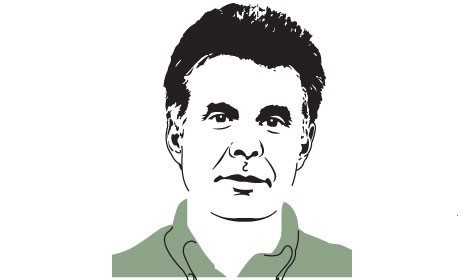Where are the grownups?
In this edition of The Week's editor's letter, William Falk says we can no longer avoid making difficult spending choices


A free daily email with the biggest news stories of the day – and the best features from TheWeek.com
You are now subscribed
Your newsletter sign-up was successful
In the past week, there's been a lot of talk of the need for "adult conversations" about government spending, so let's have one about Provenge. That's the name of a new treatment for advanced prostate cancer that federal officials are currently reviewing to see if it will be covered by Medicare and Medicaid. Provenge, a study shows, increases survival for advanced prostate cancer patients — by an average of four months. Its cost: $90,000 for those four months of treatment. Is it worth that much to give a terminally ill person a few more months? It sure as hell is, if it's your life, or that of someone you love. For the hopeless, hope is never too expensive. But as H. Gilbert Welch of the Dartmouth Institute for Health Policy told The Washington Post last week, the question becomes more complicated if society has a finite number of health-care dollars to spend. ''That’s $100,000 Medicare can’t spend elsewhere," Welch says. Multiply Provenge by, say, 30,000 patients a year, and you get $2.7 billion. Multiply that by other expensive new cancer therapies, prescription drugs, and other medical treatments, and you get monstrous health-care costs that are swallowing much of our national wealth.
So what do we do? If we impose coldly rational limits on health-care spending, we're engaged in rationing. If we refuse to limit spending on health care — or on Social Security or national defense or education — because such limits will cause distress, suffering, and outrage, then we've decided to keep spending trillions we don't have, endlessly. There's a name for people who won't accept that life is difficult, and that hard choices must be made. We call them children.
A free daily email with the biggest news stories of the day – and the best features from TheWeek.com
The Week
Escape your echo chamber. Get the facts behind the news, plus analysis from multiple perspectives.

Sign up for The Week's Free Newsletters
From our morning news briefing to a weekly Good News Newsletter, get the best of The Week delivered directly to your inbox.
From our morning news briefing to a weekly Good News Newsletter, get the best of The Week delivered directly to your inbox.
William Falk is editor-in-chief of The Week, and has held that role since the magazine's first issue in 2001. He has previously been a reporter, columnist, and editor at the Gannett Westchester Newspapers and at Newsday, where he was part of two reporting teams that won Pulitzer Prizes.
-
 The ‘ravenous’ demand for Cornish minerals
The ‘ravenous’ demand for Cornish mineralsUnder the Radar Growing need for critical minerals to power tech has intensified ‘appetite’ for lithium, which could be a ‘huge boon’ for local economy
-
 Why are election experts taking Trump’s midterm threats seriously?
Why are election experts taking Trump’s midterm threats seriously?IN THE SPOTLIGHT As the president muses about polling place deployments and a centralized electoral system aimed at one-party control, lawmakers are taking this administration at its word
-
 ‘Restaurateurs have become millionaires’
‘Restaurateurs have become millionaires’Instant Opinion Opinion, comment and editorials of the day
-
 The FCC needs to open up about LightSquared
The FCC needs to open up about LightSquaredfeature A politically-connected company that wants to build a massive 4G internet network seems to have benefited from some curious favors from the feds
-
 Do you believe in magic?
Do you believe in magic?feature The House speaker's debt-ceiling proposal is smoke and mirrors. That's what's good about it
-
 Will both sides blink on the debt ceiling?
Will both sides blink on the debt ceiling?feature With the financial credibility of our nation at stake, and both parties facing massive political risks, lawmakers might agree to a grand bargain after all
-
 Dine and dash?
Dine and dash?feature Politicians are jockeying for advantage as the bill comes due on our gaping national debt. But without an agreement soon, we'll all be stuck with the check
-
 The GOP's dueling delusional campaign ads
The GOP's dueling delusional campaign adsfeature Slick ads attacking Jon Huntsman and Tim Pawlenty as reasonable moderates show just how divorced from reality today's Republican Party is
-
 Bibi turns on the charm
Bibi turns on the charmfeature In the fight over Israel's borders, Netanyahu takes the upper hand
-
 Get rich slow
Get rich slowfeature A cheap U.S. dollar is no fun, but it will get the job done
-
 Bin Laden, the fringe Left, and the torturous Right
Bin Laden, the fringe Left, and the torturous Rightfeature The killing of the architect of September 11 has provoked predictable remonstrance from the usual suspects
